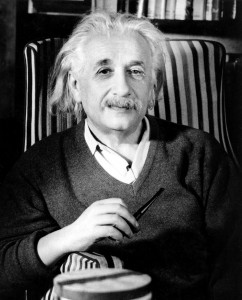 At an elegant, port-side venue in Valencia, Spain, in September, Christian Reimann received heady honors for a young scientist: the SolarWorld Junior Einstein Award, a cash prize and a standing ovation from a room full of leading scientists and industrialists working on solar photovoltaic technology.“The award was the pinnacle of my career so far,” said Reimann, now manager of a group researching silicon crystallization at the prestigious Fraunhofer Institute for Integrated Systems and Building Element Technology in Erlangen, Germany. Reimann won the award for his work developing a process to reduce impurities in silicon melted for crystallization and thereby elevate the efficiency of resulting solar cells and lower the costs of solar power. The process later was patented.
At an elegant, port-side venue in Valencia, Spain, in September, Christian Reimann received heady honors for a young scientist: the SolarWorld Junior Einstein Award, a cash prize and a standing ovation from a room full of leading scientists and industrialists working on solar photovoltaic technology.“The award was the pinnacle of my career so far,” said Reimann, now manager of a group researching silicon crystallization at the prestigious Fraunhofer Institute for Integrated Systems and Building Element Technology in Erlangen, Germany. Reimann won the award for his work developing a process to reduce impurities in silicon melted for crystallization and thereby elevate the efficiency of resulting solar cells and lower the costs of solar power. The process later was patented.
Young scientists in fields related to solar photovoltaics – systems technology, nanotechnology, general energy technology, crystallography and engineering subjects – have about a month left to submit their research in this year’s sixth annual staging of the competition for a chance to win the award trophy, 5,000 euros and professional recognition. Their final scientific paper in English or German must have been evaluated between June 2010 and June 2011. The deadline for application submissions is June 15.
Ethan Good, SolarWorld’s U.S. head of research and development and a doctoral graduate of the Colorado School of Mines, hopes young scientists will enter the competition to spread recognition for photovoltaic research into the Americas, where the company has been the largest solar manufacturer for more than 35 years. “European researchers have made well-recognized discoveries in the scientific fields that underlie solar technology,” Good said. “It’s time for researchers in the Americas to compete for recognition of their own advances.”Award namesake Albert Einstein not only founded modern physics but also explained the photoelectric effect.


